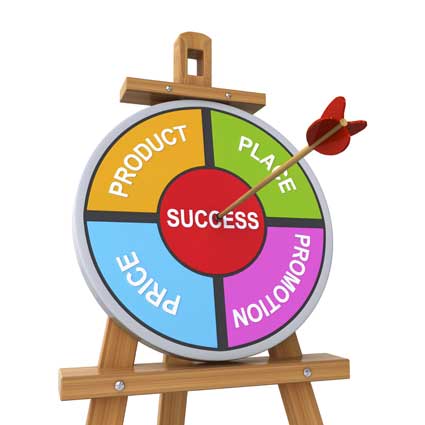Whether you have totally decided it's a go, haven't quite committed to the idea, or have actually developed the business plan for your own consulting business, this articlewill help you to make solid decisions in the planning, execution, and operation of your consultant business.
Consulting is not a new industry. The concept of one individual or group relying on the expertise and guidance of another has been around for quite some time. Yet, in recent years, the consulting industry has seen significant growth.
Let's look at the industry outlook, some statistics, and why people become consultants. This chart offers insight into the consulting landscape, such as the average years as a consultant, the average number of employees for a company, and how they charge for services.
|
Consulting Industry Statistics |
||
|
Statistic |
Quantity |
Unit |
|
Employment in U.S. Management & Technical Consulting Services |
1,302.2 |
Thousands |
|
Global Consulting Industry Revenues |
449 |
Billions |
|
U.S. Management, Scientific & Technical Consulting Industry Revenues, |
191.4 |
Billions |
|
Accounting Industry Revenues |
152.0 |
Billions |
|
Environmental Consulting Services Revenues |
10.9 |
Billions |
|
Financial Management Consulting |
7.0 |
Billions |
|
Human Resources Management Consulting |
15.5 |
Billions |
|
IT Technical Design, Development, and Consulting |
9.1 |
Billions |
|
Marketing Management Consulting |
16.1 |
Billions |
|
Management Consulting Companies Revenues |
139.0 |
Billions |
|
Operations and Supply Chain Management Consulting |
8.3 |
Billions |
|
Strategic Management Consulting |
37.9 |
Billions |
You are probably interested in what the pay is like, what kind of experience is required, and how many people are in the field. Here are some of the basics for the industry.
|
Consulting Industry Statistics |
|
|
Statistic |
Details |
|
Average pay |
$78,000 per year or $38 per hour |
|
Education required |
Depends on the type of consulting and industry expectations, but typically a bachelor's degree or more. For example, if you wanted to do consulting in accounting, it would require that you be a Certified Public Accountant. |
|
Work experience |
Again depends on what type of consulting, but, on average, a minimum of five years would be the experience benchmark for being a consultant. |
|
Growth rate |
20 percent per year |
*Based on Department of Labor Statistics
So what exactly does a consultant do? In general, consultants are analysts that possess the expertise to propose improvements or solutions to clients. This typically is an improvement in the organization's efficiency. Most companies hire a consultant to help make their business more profitable, by increasing revenue and reducing expenses.
Consultants may work individually, or as one of many consultants for a consulting company. They specialize in a particular area in which they have interest and expertise. Each consultant uses a similar business framework, but they differ in their methodologies. Each industry has its own complexities and similarities.
|
Typical Consulting Industries |
|
|
Strategy |
Environmental |
|
Healthcare |
Telecommunications |
|
Safety |
Banking |
|
Engineering |
Process |
|
Marketing |
Information technology |
|
Management |
Taxes and accounting |
|
Political |
Human resources |
|
Social media |
Construction |
Here are some of the typical activities a consultant would do in their line of work:
-
Research and compile information about the client's problem
-
Interview employees and perform process observations
-
Perform analyses of company data
-
Develop a solution and alternatives
-
Produce analytical reports, which include recommendations for process or procedural changes
-
Make recommendations to the company's management through a written report or formal presentation
-
Follow up with management to ensure recommendations are implemented
Your job is to develop a specialized strategy to help the company be more competitive in the marketplace.
As you can see, consulting is a thriving industry. With a significant success rate and continual growth, consulting looks like a win-win endeavor well into the future. Consulting is one of the opportunities you can pursue on a part-time basis, while maintaining your full-time job.
* The US Census report shows management consulting services as an ever-growing and thriving business.
|
Pros and cons to becoming a consultant |
|
|
Benefits |
Down side |
|
Be your own boss |
Lack of steady income |
|
Higher earnings |
Collection of fees |
|
Improved skill set |
Overhead cost |
|
Flexible schedule |
Health benefits, taxes, and retirement |
|
Work variation |
Travel |
|
Social networking |
Hours |
|
Choose your own projects |
Stress |
Becoming a consultant is very similar to starting your own business, like any other entrepreneur. There are common questions you would ask yourself, such as:
-
Do I have the capabilities to provide a valuable service to clients?
Meaning, do I possess the expertise, competence, and professional demeanor to offer a consulting service to clients?
-
Do I understand the role of becoming a consultant?
Meaning, can I successfully manage the marketing aspects, billing aspects, communication aspects, and other business activities required of a consultant.
-
Have I developed a business plan to ensure the success of my business?
This would include structuring of the business for licensing requirements and tax purposes.
-
What type of consulting services will I provide?
-
Will I be able to offer the complete complement of consulting services myself, or will I need to hire others to accomplish this task?
-
How will you structure your pricing? How do you want your payment: hourly, per project, weekly, or monthly? Do you have an idea in mind? Have you researched your market rates?
-
Do you have any baseline structure to begin your business, such as existing relationships or networking?
-
Are you prepared for risk mitigation, or issues that may arise as a result of your consulting, such as legal or regulatory compliance matters?
One of the plus sides to starting your own consulting business is that it generally does not require a substantial upfront investment for you to begin. As you enter the world of consulting, you want to ensure you have carefully planned the point at which you can do full-time consulting. Many consultants begin consulting on a part-time basis, while they are employed full time. This gives a consultant the opportunity to build clientele through networking, and establish a reputation within the marketplace. Startup costs are relatively low. You may begin by negotiating with your first client for an advance payment, or financing your business through a small business loan.
You'll also want to look into the minimum state requirements for professional liability insurance coverage for your consulting business. Do this when you are setting up your business entity. Some states do have specific registration and certification requirements for individuals who perform consulting services, depending on the field.
There are several compliance issues that go along with consulting, as well. Be sure that you have procedures in place to comply with business requirements, such as workers compensation insurance and taxes.
So we've talked about the industry statistics and information on consulting businesses. You can see from the data that the industry shows no signs of slowing down, and there is always a niche for which you can provide services. You've decided you want to become a consultant because of the flexibility, opportunities, prestige, and the rewards that consulting offers. You have years of experience in your own career development, helping others through coaching and mentoring, and your own collection of best practices. You may have spoken to colleagues who work from home as a consultant and decided this might work for you. Being your own boss and setting your own hours sounds like a perfect fit for you.
For now, let's discuss your personal inventory to see if you're ready, and discuss the beginning of the framework. As you make your decision to become a consult, you want to make a personal inventory of all of your skills and experience. What is it that you have that will make you a good consultant?
-
Your values
-
Dreams
-
Work experience
-
Training
-
Education
-
Volunteer work
-
Specialized skills
-
Personal interest
It is often helpful to build an inventory of your skills and abilities. It helps you to visualize all of the skills that you truly possess, but also provides the framework for you to capitalize on your expertise. There may be skills that you possessed in a job five to 10 years ago, that you are not using in your current job, but can still be applicable to consulting activities. They may need some brushing off or honing, but are another complementary competency that you have.
Beginning your business
Once you have made the decision to start consulting, you may have a number of questions, such as: How much consulting will I do at first? It may be beneficial to frame up your mission, purpose, goals, objectives, and then develop your action plan or to-do list. Here are some examples:
-
My mission - to provide the best strategies at the highest levels of integrity and honesty to clients in order to propel their company to the next level.
-
My purpose - to design solutions using my technical expertise on an as-needed basis for application to their specific problems.
-
My goals - to be responsive to my clients' business needs and have a high level of customer satisfaction.
-
My objectives - to develop my company through growth of employees and attainment of strategic market position.
-
My values - value client relationships and the success of a high quality product. Core values of integrity, commitment, respect, excellence, innovation, teamwork
The next step is to develop your "to-do" list, as a business owner would need to do on the consulting side, and what you need to do on the business operations side. This is what you need to do to develop your skills into a package that can be sold. The majority of consultants utilize the cold turkey approach to beginning their business. They do this on a part-time basis, while still employed, to test the water as far as their products and services. This also gives them the opportunity to build a client base. This can take only a few months, or last several years. Only you can tell what the time frame will be, but there are steps you can take to help move things along.
It will be helpful to develop a strategy map, then to develop a refined list of "to do" activities. This is an example of a strategy map.
A strategy map can be a tool to help you determine, overall, what you expect to be doing. It helps you refine your mission, purpose, your values, objectives, and goals. This allows you to focus the framework of your business and your methodologies on the objectives and goals you want to obtain. By developing a strategy map, you may also realize there are components of consulting that you do not want to perform, such as accounting, marketing, or administrative activities. Some consultants only desire to do the consulting and hire contractors to do all of the administrative work. As the business owner, you have the flexibility to decide which activities you will perform, but many manage all of these aspects as they get their business off the ground.
In addition to developing your competencies and strategies, you will want to develop your business plan, financial plans, a backup plan, and planning for insurance coverage.
business plan is the foundation for any business. It explains the details in terms of legal requirements, business structure, interaction with clients, marketing plans, contingency plans, and regulatory requirements. The business plan is required if you intend to finance your new consulting business.
Summary Reminders and Takeaways
Consultants have existed in business and industry for a significant time in history. Businesses rely on individuals who can help them improve their business performance when they don't have the internal expertise.
We discussed some of the key aspects of the consulting landscape, such as the average years as a consultant, the average numbers of employees a consulting firm has, and how individuals charge for services. Based on Department of Labor statistics, billions of dollars are spent annually within the consulting industry. The pay for a consultant averages $78,000 -- or $38 per hour. Educational requirements are minimal, although beneficial, and the work experience depends on what type of consulting you will be doing. The growth rate in the industry is 20 percent per year.
Consultants do a wide range of activities within their field. This includes researching and compiling information about clients' problems, performing an analysis of company data, developing analytical reports, making recommendations to company management, and following through with an implementation plan.
Becoming a consultant has many pros and cons. The benefits to becoming a consultant include being your own boss, higher earnings, developing an improved skill set, flexible schedules, work variation, social networking, and the ability to choose your own projects. The downside of becoming a consultant includes lack of steady income, necessity to collect your fees, overhead costs, and you are responsible for health benefits, taxes, and retirement. You may be required to extensively travel, you may put in significant hours, and there may be significant stress in meeting your clients' demands.
As you look to becoming a consultant, you have to ensure you have the capabilities to provide the right services to your clients, that you understand the role of becoming a consultant, and that you understand what consulting services you will provide.
We provided a strategy map, which gives you a visual to aid in developing your own consulting company mission, purpose, and values. You combine these three with your goals and objectives. The goals and objectives are what move your business forward.































